Over the past half year or so BU academics have produced a healthy crop of publications on COVID-19/ corona virus. Searching the word ‘COVID’ today Saturday 5th September, on the university’s repository BURO (Bournemouth University Research Online), resulted in 59 records of publications whilst searching for ‘corona’ gave 48 publications. Removing duplicates, obviously irrelevant papers (e.g. one paper had a co-author called ‘Corona’) and papers published prior to 2020 resulted in a combined total of 66 BU publications. Some papers are obviously focused on COVID-19/corona virus, as the title suggests.  Others may merely mention corona virus or COVID-19 in the body of the text, perhaps as a reason for delay in the research, as a new opportunity or barrier and so on. A search on Scopus and BRIAN added nine more Bournemouth co-authored papers to the reference list below.
Others may merely mention corona virus or COVID-19 in the body of the text, perhaps as a reason for delay in the research, as a new opportunity or barrier and so on. A search on Scopus and BRIAN added nine more Bournemouth co-authored papers to the reference list below.
References from BURO & Scopus:
- Adedoyin, F., Bekun, F.V., Driha, M.O. and Balsalobre-Lorente, D., 2020. The Effects of Air Transportation, Energy, ICT and FDI on Economic Growth in The Industry 4.0 Era: Evidence from the United States. Technological Forecasting and Social Change. (In Press)
- Ahmed, O., Carmody, S., Walker, L. and Ahmad, I., 2020. The need for speed! 10 ways that WhatsApp and instant messaging can enhance communication (and clinical care) in sport & exercise medicine. British Journal of Sports Medicine. (In Press)
- Ahmed, O., Fulcher, M., Malone, D., Mira Y Lopez, C., Rho, M. and Strojna, A., 2020. The introduction of temporary concussion substitutions in disability football: Are we “headed” in the right direction? Football Medicine & Performance, Spring (32), 13 – 16.
- Akudjedu, T.N., Lawal, O., Sharma, M., Elliott, J., Stewart, S., Gilleece, T., McFadden, S. and Franklin, J.M., 2020. Impact of the COVID-19 pandemic on radiography practice: findings from a UK radiography workforce survey. British Journal of Radiology. (In Press)
- Alhassan, G., Adedoyin, F., Bekun, F.V. and Agabo, T., 2020. Does Life Expectancy, Death Rate and Public Health Expenditure matter in sustaining Economic growth under COVID-19: Empirical Evidence from Nigeria? Journal of Public Affairs. (In Press)
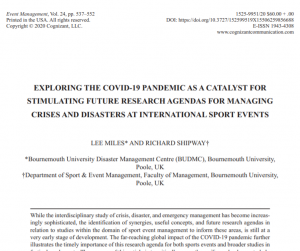
- Al Maamari, G., 2020. Multiple stakeholders’ perception of the long-term success of project: a critical study of Oman tourism resort projects. Doctoral Thesis (Doctoral). Bournemouth University
- Angelopoulos, C.M. and Katos, V., 2020. DHP Framework: Digital Health Passports Using Blockchain – Use case on international tourism during the COVID-19 pandemic. arXiv (2005.08922v2 [cs.CY]).
- Asim, M., Sathian, B., van Teijlingen, E., Mekkodathil, A., Subramanya, S.H. and Simkhada, P., 2020. COVID-19 Pandemic: Public Health Implications in Nepal. Nepal Journal of Epidemiology, 10 (1), 817 – 820.
- Azman, A., Singh, P., Parker, J. and Ashencaen Crabtree, S., 2020. Addressing competency requirements of social work students during the Covid-19 pandemic in Malaysia. Social Work Education. (In Press) DOI: 10.1080/02615479.2020.1815692
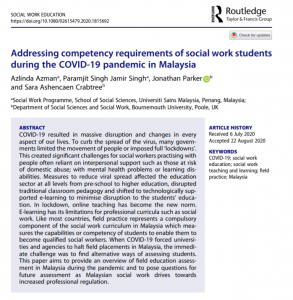
- Balsalobre- Lorente, D., Driha, O.M., Bekun, F.V., Sinha, A. and Adedoyin, F., 2020. Consequences of Covid-19 on the Social Isolation of the Chinese Economy: Accounting for the Role of Reduction in Carbon Emissions. Air Quality, Atmosphere and Health. (In Press)
- Cai, W., McKenna, B., Wassler, P. and Williams, N., 2020. Rethinking Knowledge Creation in Information Technology and Tourism. Journal of Travel Research. (In Press)
- Caudwell, J., 2020. Transgender and Non-binary Swimming in the UK: Indoor Public Pool Spaces and Un/Safety. Frontiers in Sociology, 5, 64
- Clarkson, B.G., Culvin, A., Pope, S. and Parry, K. D., 2020. Covid-19: Reflections on threat and uncertainty for the future of elite women’s football in England. Managing Sport and Leisure. (In Press)
- Côté, P, Bussières, A, Cassidy, J., Hartvigsen, J, Kawchuk, G., Leboeuf-Yde, C, Mior, S, Schneider, M, and more than 140 signatories# call for an end to pseudoscientif, and Breen, A. C., 2020. A united statement of the global chiropractic research community against the pseudoscientific claim that chiropractic care boosts immunity. Chiropractic & Manual Therapies, 28 (1), 21.
- Cretan, R. and Light, D., 2020. COVID-19 in Romania: transnational labour, geopolitics, and the Roma ‘outsiders’. Eurasian Geography & Economics. (In Press)
- Escaith, H., Khorana, S., MacGregor, J., Vickers, B. and Ali, S., 2020. The Potential Impact of COVID-19 on Commonwealth Trade, Recovery and Resilience. The Commonwealth Trade Hot Topics, 161.
- Esteves, L., Ashencaen Crabtree, S. and Hemingway, A., 2020. Impacts of C-19 lockdown on the work-life balance of BU academics – Preliminary results. Working Paper. Poole, England: Bournemouth University.
- Fowler-Watt, K., Majin, G., Sunderland, M., Phillips, M., Brine, D., Bissell, A. and Murphy, J., 2020. Reflections on the Shifting Shape of Journalism Education in the Covid-19 pandemic. Digital Culture and Education (June 22). (In Press)
- Gingrich, O., Shemza, A. and Almena, M., 2020. TRANSFORMATIONS: New media art between communities and professional practice. In: EVA London, 16-18 November 2020, London. (In Press)
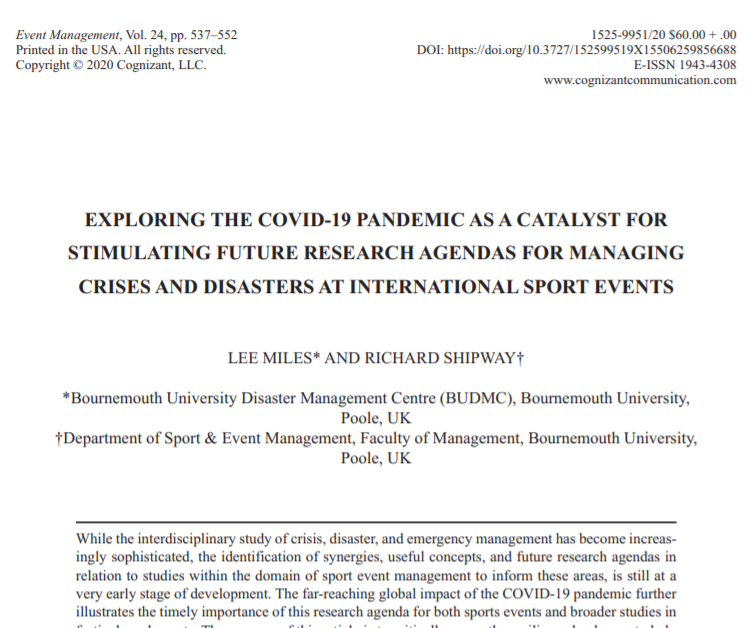 Giousmpasoglou C, Marinakou E, Zopiatis A. 2020. Ο ρόλος των Γενικών Διευθυντών στα ξενοδοχεία 4* και 5* κατά τη διάρκεια της πανδημίας COVID-19: μία έρευνα σε 45 χώρες. Money & Tourism Magazine
Giousmpasoglou C, Marinakou E, Zopiatis A. 2020. Ο ρόλος των Γενικών Διευθυντών στα ξενοδοχεία 4* και 5* κατά τη διάρκεια της πανδημίας COVID-19: μία έρευνα σε 45 χώρες. Money & Tourism Magazine- Hobson, S., Hind, M, Mojsilovic, A, Varshney, KR. 2020 Trust and Transparency in Contact Tracing Applications, CoRR, abs/2006.11356
- Hodge, S. and Johnson, L., 2020. The digitally resilient student. The Psychologist.
- Hughes, J.G., Leydon, G.M., Watts, S., Hughes, S., Brindle, L.A., Arden-Close, E., Bacon, R., Birch, B., Carballo, L., Plant, H., Moore, C.M., Stuart, B., Yao, G., Lewith, G. and Richardson, A., 2020. A feasibility study of a psycho-educational support intervention for men with prostate cancer on active surveillance. Cancer Reports, 3 (2), e1230.
- Jackson, D., Bradbury-Jones, C., Baptiste, D., Gelling, L. H., Morin, K., Neville, S. and Smith, G.D., 2020. Life in the pandemic: Some reflections on nursing in the context of COVID-19. Journal of Clinical Nursing, 29 (13-14), 2041-2043.
- Jackson, D., Bradbury-Jones, C., Baptiste, D., Gelling, L.H., Morin, K., Neville, S. and Smith, G.D., 2020. International Nurses Day 2020: Remembering nurses who have died in the COVID-19 pandemic. Journal of Clinical Nursing, 29 (13-14), 2050-52.
- Jan, R. and van Teijlingen, E., 2020. COVID-19: The New Corona Virus Upsetting Our World. Journal of Asian Midwives, 7 (1), 1 – 3.
- Kaolawanich, R., Oe, H., Yamaoka, Y. and Chang, C. Y., 2020. A discussion of a luxury apparel brand strategy in an emerging market: Conceptual model with network perspectives. Journal of Social, Cultural and Political Studies, 4 (2), 58 – 72.
- Khashu, M., Provenzi, L., Adama, E., Garfield, C., Koliouli, F., Fisher, D., Nørgaard, B., Thomson-Salo, F., van Teijlingen, E., Ireland, J. and Feeley, N., 2020. COVID-19 restrictions and fathers of infants in neonatal care. BMJ Global Health, 5 (4).
- Khorana, S, Escaith, H, MacGregor J, Vickers B, Ali S., 2020 The Potential Impact of COVID-19 on Commonwealth Trade, Recovery and Resilience he Commonwealth Trade Hot Topics Article number 161
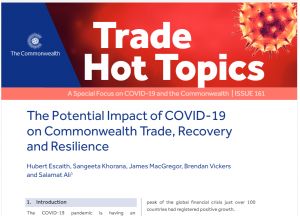
- Li, Z., Feng, C., Zheng, J., Wu, M. and Yu, H., 2020. Towards Adversarial Robustness via Feature Matching. IEEE Access, 8, 88594 – 88603.
- Light, D., Cretan, R., Voiculescu, S. and Juca, S., 2020. Introduction: Changing Tourism in the Cities of Post-communist Central and Eastern Europe. Journal of Balkans and Near Eastern Studies, 22 (4), 465-477.
- Lyne, M., Brown, K. and Grimshaw, K., 2020. Advance care planning. Poole, England: NCPQSW Bournemouth University.
- Lyne, M., Grimshaw, K. and Brown, K., 2020a. The Mental Capacity Act requirements for clinical decisions regarding treatment and care. Poole, England: NCPQSW Bournemouth University
- Lyne, M., Grimshaw, K. and Brown, K., 2020b. Guidance on the use of the Mental Capacity Act for decisions regarding clinical treatment and care: An introduction. Poole, England: NCPQSW Bournemouth University.
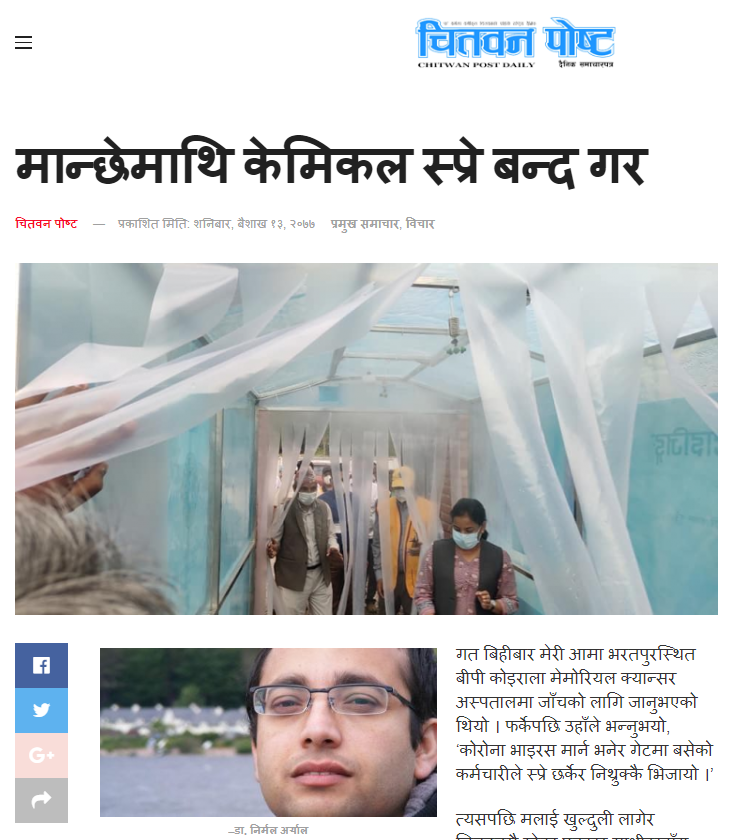
- Lyne, M., Grimshaw, K. and Brown, K., 2020c. The Mental Capacity Act requirements when an individual lacks the mental capacity to consent to treatment and care. Poole, England: NCPQSW Bournemouth University.
- Lyne, M. and Parker, J., 2020. From Ovid to Covid: The metamorphosis of Advanced Decisions to Refuse Treatment into a safeguarding issue. Journal of Adult Protection. (In Press)
- Mahato, P. K., Tamang, P., Shahi, P., Aryal, N., Regmi, P., Van Teijlingen, E. and Simkhada, P., 2020. Effects of COVID-19 during lockdown in Nepal. Europasian Journal of Medical Sciences, 2 (2).
- Matthews, J., 2020. “Cultural exceptionalism” in the global exchange of (mis)information around Japan’s responses to Covid-19. Media and Communication, 8 (2), 448-451.
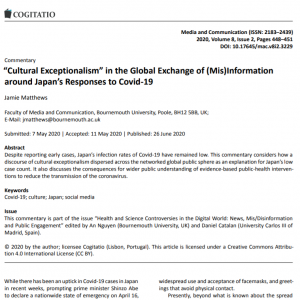
- McAlaney, J. and Hills, P.J., 2020. Understanding Phishing Email Processing and Perceived Trustworthiness Through Eye Tracking. Frontiers in Psychology, 11, 1756.
- Miles, L. and Shipway, R., 2020. Exploring the COVID-19 Pandemic as a Catalyst for Stimulating Future Research Agendas for Managing Crises and Disasters at International Sport Events. Event Management, 24 (4), 537- 552.
- Mimler, M., 2020. Current developments – Europe: The final nail in the coffin for the patent with unitary effect or just another bump in the road? The German Constitutional Court declares void the German Act of Approval on a Unified Patent Court (2 BvR 739/17). Intellectual Property Forum, 120 (June), 89 – 91.
- Muniz-Pardos, B., Shurlock, J., Debruyne, A., Steinacker, J.M., Börjesson, M., Wolfarth, B., Bilzon, J.L.J., Löllgen, H., Ionescu, A., Zupet, P., Dohi, M., Swart, J., Badtieva, V., Zelenkova, I., Casasco, M., Geistlinger, M., Bachl, N., Tsofliou, F., Di Luigi, L., Bigard, X., Papadopoulou, T., Webborn, N., Singleton, P., Miller, M., Pigozzi, F. and Pitsiladis, Y.P., 2020. Collateral Health Issues Derived from the Covid-19 Pandemic. Sports Medicine – Open, 6 (1), 35.
- Ndasi, W., Bolat, E. and Roushan, G., 2020. Digital cause-related marketing advertising formats: Do the perceived donation amount offer and gender matters in display advertising on non-profit digital sites? Journal of Advertising Research. (In Press)
- Nguyen, A. and Catalan, D., 2020. Digital Mis/Disinformation and Public Engagment with Health and Science Controversies: Fresh Perspectives from Covid-19. Media and Communication, 8 (2), 323 – 328.
- Nguyen, H. and Nguyen, A., 2020. Covid-19 Misinformation and the Social (Media) Amplification of Risk: A Vietnamese Perspective. Media and Communication, 8 (2), 444-447.
- O’Carroll, V., Owens, M., Sy, M., El-Awaisi, A., Xyrichis, A., Leigh, J., Nagraj, S., Huber, M., Hutchings, M. and McFadyen, A., 2020. Top tips for interprofessional education and collaborative practice research: a guide for students and early career researchers. Journal of Interprofessional Care. (In Press)
 Oe, H., 2020. Discussion of digital gaming’s impact on players’ well-being during the COVID-19. arXiv (2005.00594v1 [cs.CY]).
Oe, H., 2020. Discussion of digital gaming’s impact on players’ well-being during the COVID-19. arXiv (2005.00594v1 [cs.CY]).- Oe, H., Takemoto, T. and Ridwan, M., 2020. Is Gamification a Magic Tool?: Illusion, Remedy, and Future Opportunities in Enhancing Learning Outcomes during and beyond the COVID-19. Budapest International Research and Critics in Linguistics and Education (BirLE) Journal, 3 (3), 1401 – 1414.
- Oe, H. and Weeks, M., 2020. How to Support Vulnerable Citizens during the COVID-19 Lockdown: A Community Initiative from Ubiquitous Network Perspectives. Budapest International Research and Critics Institute (BIRCI-Journal), 3 (2), 1369 – 1377.
- Parrilli, M. D., Balavac, M. and Radicic, D., 2020. Business innovation modes and their impact on innovation outputs: Regional variations and the nature of innovation across EU regions. Research Policy, 49 (8), 104047.
- Patsakis, C., Casino, F. and Katos, V., 2020. Encrypted and Covert DNS Queries for Botnets: Challenges and Countermeasures. Computers and Security, 88 (January), 101614.
- Pinder, A.C., Raghavan, R., Britton, J. R. and Cooke, S.J., 2020. COVID-19 and biodiversity: The paradox of cleaner rivers and elevated extinction risk to iconic fish species. Aquatic Conservation: Marine & Freshwater Ecosystems, 30 (6), 1061-1062.
- Richards, B., 2020. The causes of sanity. Free Associations (78), 19-32.
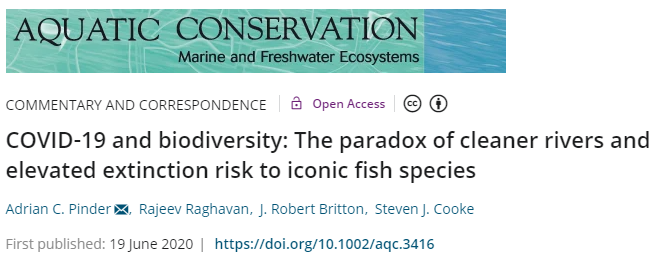
- Rosser, E. Westcott, L., Ali, P.A., Bosanquet, J., Castro-Sanchez, E., Dewing, J., McCormack, B., Merrell, J., Witham, G. 2020 The Need for Visible Nursing Leadership During COVID-19. Journal of Nursing Scholarship. (In Press)
- Rutherford, and Cownie, F., 2020. Teaching Advertising for the Public Good. Westminster Papers in Communication and Culture, 15 (2), 162-177.
- Short, M., Bitzer, J. and Rowlands, S., 2020. Testing times. The European Journal of Contraception and Reproductive Health Care. (In Press)
- Sathian, B., Asim, M., Mekkodathil, A., van Teijlingen, E., Subramanya, S.H., Simkhada, P., Marahatta, S.B. and Shrestha, U.M., 2020. Impact of COVID-19 on community health: A systematic review of a population of 82 million. Journal of Advances in Internal Medicine, 9 (1), 4 – 11.
- Simmonds A, Nunn A, Gray M, Hardie C, Mayo S, Peter E, Richards J. 2020. Pedagogical practices that influence professional identity formation in baccalaureate nursing education: A scoping review. Nurse Education Today 93:104516
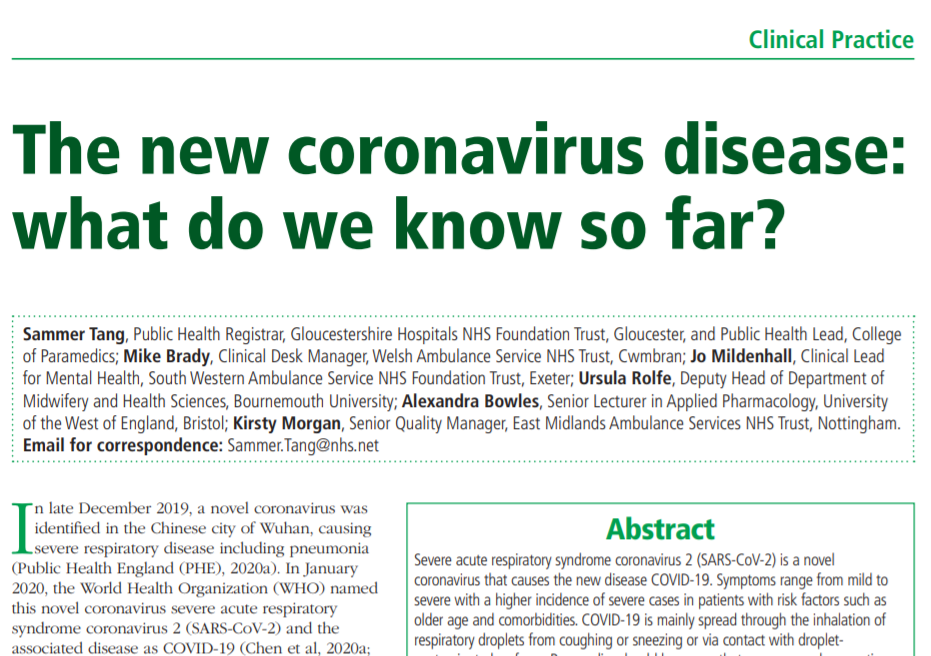
- Soopramanien, A., Jamwal, S. and Thomas, P., 2020. Digital health rehabilitation can improve access to care in spinal cord injury in the UK: A proposed solution. International Journal of Telerehabilitation, 12 (1), 3 – 16.
- Sreedharan, C., Thorsen, E., Upreti, L. and Sharma, S., 2020. Impact of COVID-19 on journalism in Nepal. Project Report. Tripureshwor, Kathmandu: Nepal Press Institute.
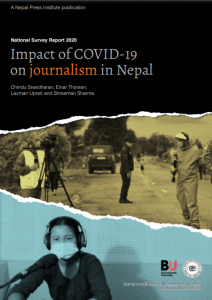
- Stankov, U., Filimonau, V. and Vujičić, M.D. 2020. A mindful shift: an opportunity for mindfulness-driven tourism in a post-pandemic world. Tourism Geographies. (In Press)
- Swain, I. D., 2020. Why the mask? The effectiveness of face masks in preventing the spread of respiratory infections such as COVID-19 – a home testing protocol. Journal of Medical Engineering & Technology, 1 – 4.
- Tamang, P., Mahato, P., van Teijlingen E, Simkhada, P. 2020 Pregnancy and COVID-19: Lessons so far, Healthy Newborn Network [14 April] healthynewbornnetwork.org/blog/pregnancy-and-covid-19-lessons-so-far/
- Tang,S., Brady,M., Mildenhall, J., Rolfe, U., Bowles,. A., Morgan,K,. 2020. The new coronavirus disease: what do we know so far? Journal of Paramedic Science, 12(5) https://doi.org/10.12968/jpar.2020.12.5.193
- Umesh U, Kundu, D, Selvaraj, C, Singh SK, Dubey, VK., 2020 Identification of new anti-nCoV drug chemical compounds from Indian spices exploiting SARS-CoV-2 main protease as target, Journal of Biomolecular Structure and Dynamics
- van Teijlingen, E., Asim, M. and Sathian, B., 2020. Coronavirus Disease (COVID-19) and the risk of Post-Traumatic Stress Disorder: A mental health concern in Nepal. Nepal Journal of Epidemiology, 10 (2), 841 – 844.
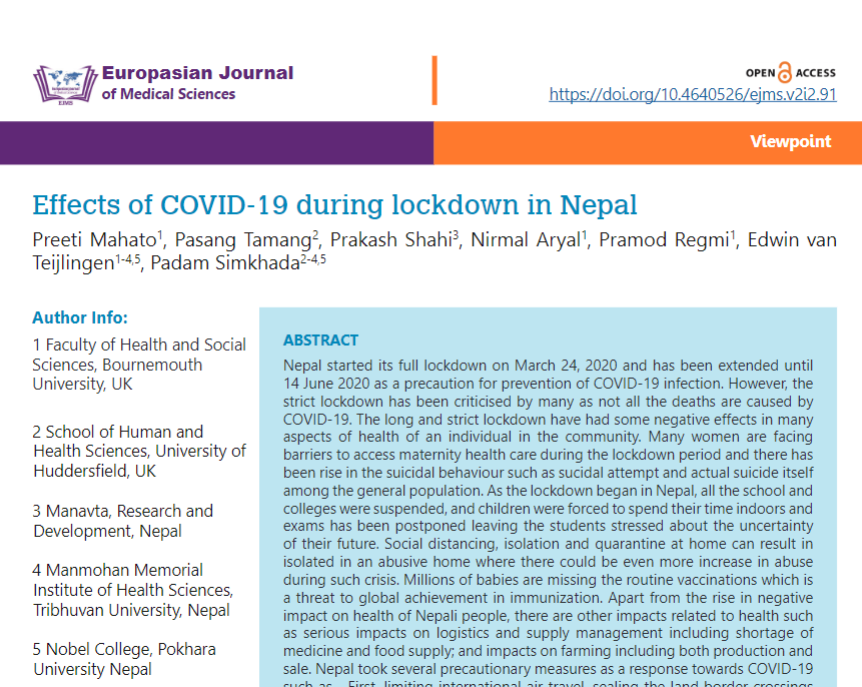 Wallis, R. and Van Raalte, C., 2020a. If industry-oriented degrees are the answer, what are some of the questions? How do students attribute value to their undergraduate experience from the perspective of post-university employment? WONKHE (19 May 2020).
Wallis, R. and Van Raalte, C., 2020a. If industry-oriented degrees are the answer, what are some of the questions? How do students attribute value to their undergraduate experience from the perspective of post-university employment? WONKHE (19 May 2020).- Wallis, R. and Van Raalte, C., 2020b. ‘Just the way the industry works’: how film and TV need to be more than fair weather industries. The Talent Manager (29 June 2020), 377.
- Wallis, R. and Van Raalte, C., 2020. Growing a sustainable workforce: A response to the DCMS Committee’s Call for Evidence for its inquiry into the ‘Impact of Covid-19 on DCMS sectors’. Discussion Paper. UK Parliament.
- Wainwright, T. and Low, M., 2020c. Beyond Acute Care: Why collaborative self-management should be an essential part of rehabilitation pathways for COVID-19 patients. Journal of Rehabilitation Medicine, 52, jrm00055.
- Wainwright, T., Gill, M., McDonald, D.A., Middleton, R.G., Reed, M., Sahota, O., Yates, P. and Ljungqvist, O., 2020. Consensus statement for perioperative care in total hip replacement and total knee replacement surgery: Enhanced Recovery After Surgery (ERAS®) Society recommendations. Acta Orthopaedica, 91 (1), 3- 19.
- Weidhase, N. and Wilde, P. 2020. ‘Art’s in pop culture in me’: Posthuman Performance and Authorship in Lady Gaga’s Artpop (2013). Queer Studies in Media and Popular Culture. (In Press)
- Wood, C. 2020. COVID-19: Protecting the medically vulnerable, British Journal of Nursing 29(12):660
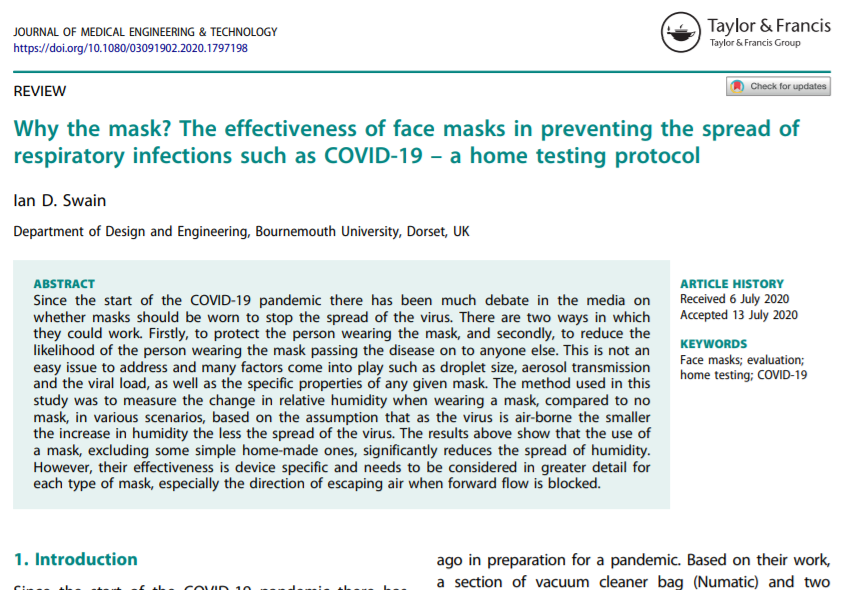 Zhao, X., 2020a. How China’s State Actors Create a “Us vs US” world during Covid-19 Pandemic on Social Media. Media & Communication, 8 (2), 452 – 457.
Zhao, X., 2020a. How China’s State Actors Create a “Us vs US” world during Covid-19 Pandemic on Social Media. Media & Communication, 8 (2), 452 – 457.- Zhao, X., 2020b. Auditing the “Me Inc.”: Teaching personal branding on LinkedIn through an experiential learning method. Communication Teacher. (In Press)
Whilst searching BU Research Blog added a further eight references:
- Aryal, N. (2020) Misinformation: a visible enemy of public health, BU Research Blog (27 May) https://blogs.bournemouth.ac.uk/research/2020/05/27/misinformation-a-visible-enemy-of-public-health/
- Alloh, F.T., Regmi, P., van Teijlingen, E. (2020) Is ethnicity linked to incidence or outcomes of Covid-19? (Rapid Response) BMJ (14 May) 369:m1548
- Ballardini, R., Santos Rutschman, A., Mendi, D. (2020) 3D Printing: How an Emerging Technology May Help Fight a Pandemic https://iprinfo.fi/artikkeli/3d-printing-how-an-emerging-technology-may-help-fight-a-pandemic/
- Heaslip, V., Parker, J. (2020) The hidden impact of coronavirus on Gypsy, Roma Travellers, The Conversation (18 August) https://theconversation.com/the-hidden-impact-of-coronavirus-on-gypsy-roma-travellers-141015
- Clarkson, B., Culvin, A., Parry, K., Pope, S. (2020) Coronavirus: the future of women’s football is under threat, The Conversation (15 June) https://theconversation.com/coronavirus-the-future-of-womens-football-is-under-threat-139582
- Batey, J., Parry, K. 2020. Coronavirus: why self-isolation brings mental health strain for elite athletes, The Conversation (14 April) https://theconversation.com/coronavirus-why-self-isolation-brings-mental-health-strain-for-elite-athletes-135273
- Hemingway, A. 2020. Nurses are on the coronavirus frontline, so why are they being left out of the response? The Conversation (9 Sept) https://theconversation.com/nurses-are-on-the-coronavirus-frontline-so-why-are-they-being-left-out-of-the-response-143658
- Miles, L. 2020. Sierra Leone faces coronavirus as rainy season hits – local disaster planning will be key, The Conversation (19 June) https://theconversation.com/sierra-leone-faces-coronavirus-as-rainy-season-hits-local-disaster-planning-will-be-key-139604

 And last, but not least, BU’s PATH project team has produced a comic book to point pregnant women and their families to a collection of trusted online resources The interactive version of the book is here.
And last, but not least, BU’s PATH project team has produced a comic book to point pregnant women and their families to a collection of trusted online resources The interactive version of the book is here.
Prof. Edwin van Teijlingen
Centre for Midwifery, Maternal & Perinatal Health (CMMPH)
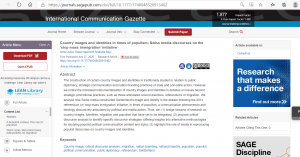

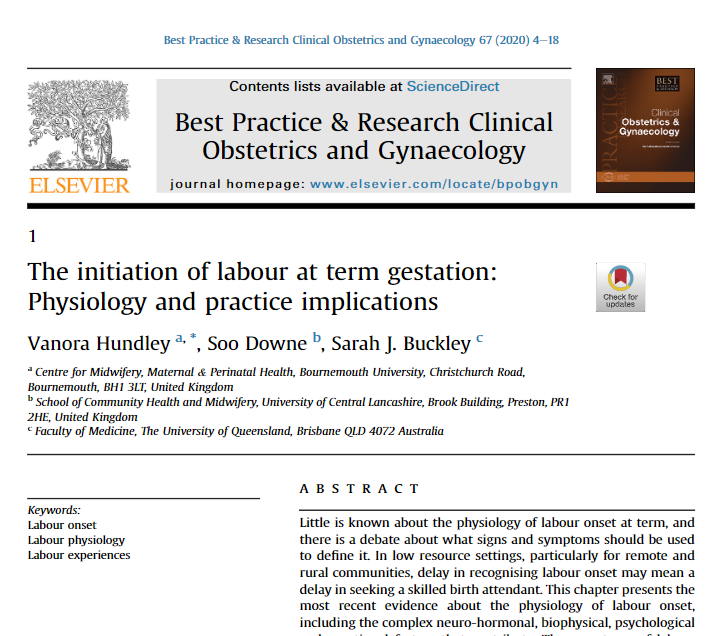

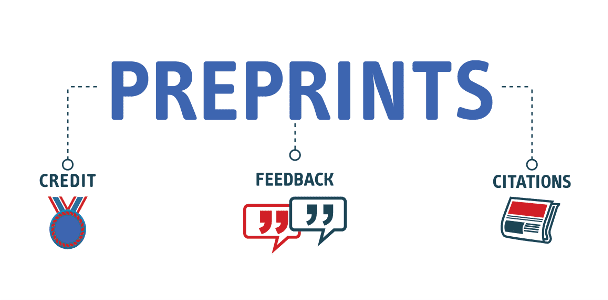
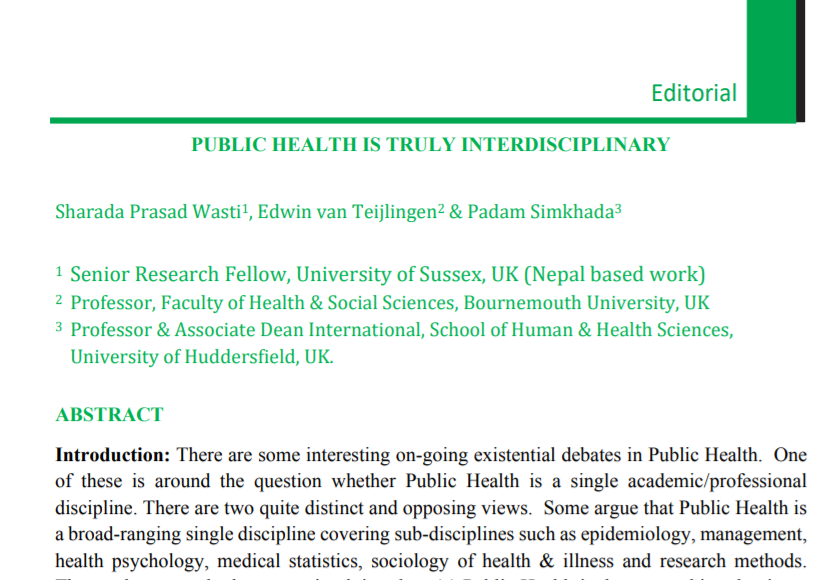

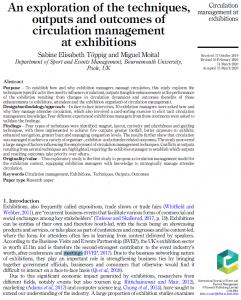
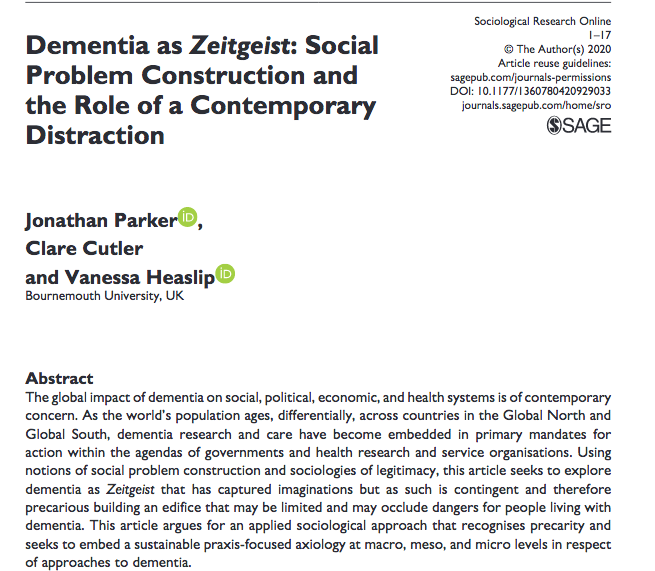



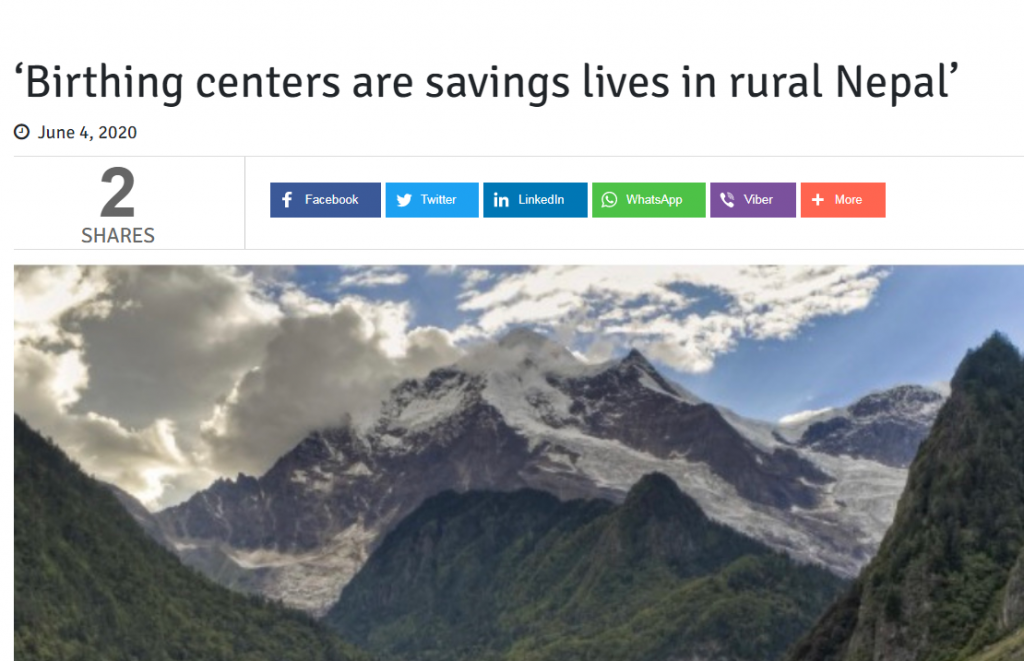

 Monday 8th June 10:00 – 12:00
Monday 8th June 10:00 – 12:00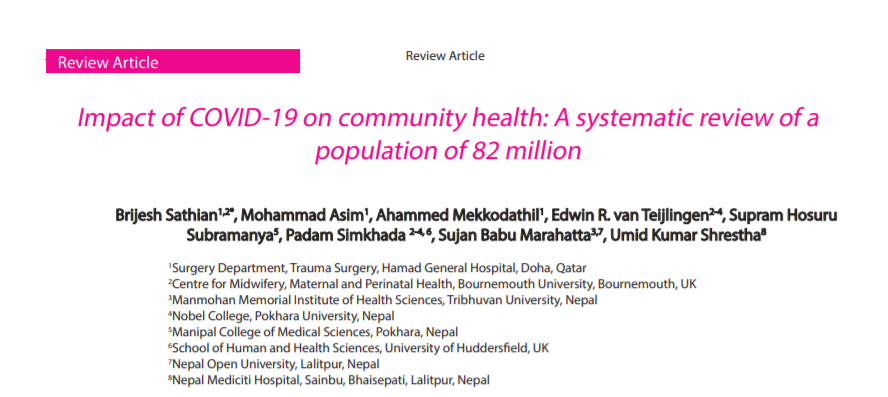
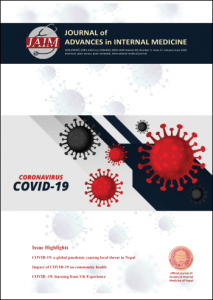

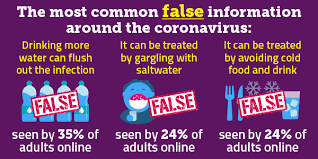
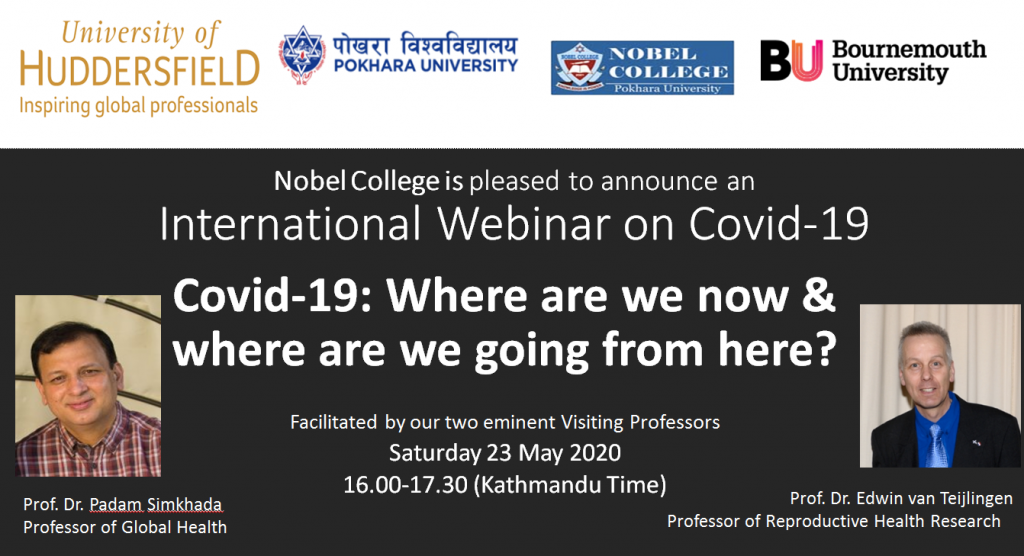
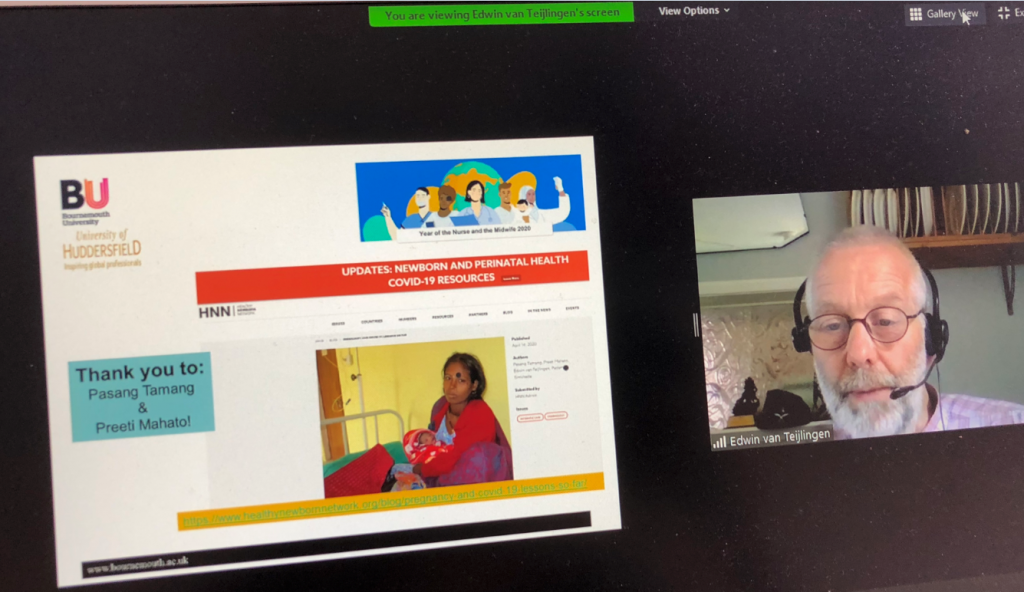











 TANGERINE project has lift off with BPC Indian Community!
TANGERINE project has lift off with BPC Indian Community! Postgraduate Research Experience Survey (PRES) 2024 – Closing today
Postgraduate Research Experience Survey (PRES) 2024 – Closing today THE INNOVATION COMMON ROOM: Going Old School
THE INNOVATION COMMON ROOM: Going Old School Apply for up to £1,000 to deliver an event and take part in a national festival of public engagement with research
Apply for up to £1,000 to deliver an event and take part in a national festival of public engagement with research MSCA Postdoctoral Fellowships 2024
MSCA Postdoctoral Fellowships 2024 Horizon Europe News – December 2023
Horizon Europe News – December 2023